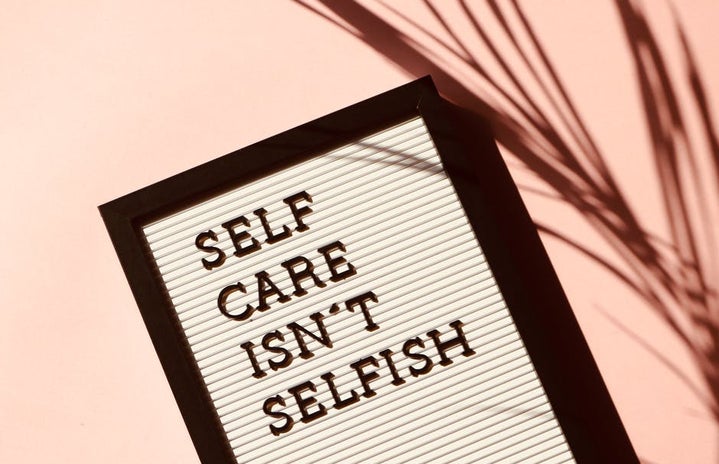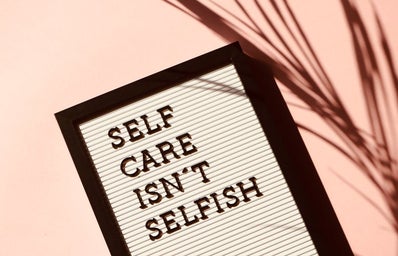The term “self-care” has become one of the biggest buzzwords in recent years as more people advocate for mental health. In its perfect sense, self-care simply means taking care of yourself. This is inarguably important, but its vagueness has been exploited to encompass literally everything. It has taken on a breadth of meaning; it could mean eating healthily or eating unhealthily, going out or staying in, waking up early or sleeping in.
At the same time, the true meaning has been lost (or at least diluted) in consumer culture. Self-care has been commodified — packaged in face masks, beauty treatments and fitness class passes — and sold to us as a solution to our problems. These imperfect forms of self-care only serve as a distraction from the chaos and stressors of daily life, but true self-care is cultivating a life that you don’t have to routinely escape from.
Self-care ≠ self indulgence
Let’s first talk about what self-care isn’t. There’s absolutely nothing wrong with taking yourself out to get a manicure or buying a cute dress that you really love. But these are self-indulgences, which can contribute to self-care, but aren’t synonymous with it. This misconception isn’t really our fault. We’ve been conditioned by companies who appropriate the term-self care and sell us the notion that it involves spending on material things. These temporal rewards and indulgences may give us that instant gratification that we need, but they only serve us for a fleeting moment.
Social media has played a huge role in this too. Wellness is aspirational, and we often see other users, particularly influencers, post pictures of their purchases or sponsorships with captions like “treat yourself for every little thing you’ve done”. These can be as simple as a bubble tea or as extravagant as a luxury bag or an overseas trip. Beyond the fact that these aren’t reflective of true self-care, it may not be realistic or work for everyone. There’s also the danger of promoting the idea that the amount one spends is proportionate to the self-care they get, which is simply not true.
While these self-indulgences can be part of a self-care routine, they should not be the only forms of behaviours that you rely on for your overall wellness. Self-care is much deeper than material gratification, and there is a need to be honest with ourselves, and identify whether what we’re doing is out of self-care or self-indulgence.
Authentic self-care is a routine you cultivate, and it’s hard work
So, what is self-care? Psychotherapist Fran Walfish says that it is a set of ritual routines, including behaviours and activities that one can perform regularly that contribute to one’s physical, mental and emotional wellness. These behaviours or activities aren’t ways to escape from reality, but rather, ways to help one to cope better with it.
These can include things like hygiene, nutrition, maintaining a good sleeping cycle or staying socially connected to loved ones. More importantly, it looks different for everybody. For some, starting the day meditating may be the only thing they need, but others may need to sweat it at midnight by going for a run. Beyond activities, they can also sometimes be life-altering decisions that may be difficult in the moment, like walking away from a toxic job or person, but sets you on a better path in life.
These actions and decisions require self-discipline and tough work, which may feel different from the notion of self-care we’ve been conditioned to accept. However, consciously taking time and effort to cultivate this routine is essential to building resilience. With that, your mental state and wellness will less likely be subject to the chaos and stressors of daily life, leading to more long-term gratification.
So how do you get started?
Because everyone processes stress differently, the first step is to figure out how you do it.
If you have not dipped your toe into the world of self-care before, it would be beneficial to try out some of the self-care routines that the internet recommends, like journaling, reading (check out our editorial team’s recommendations) or taking a walk daily. It can also be as simple as altering part of your routine, like going to bed earlier. This allows you to figure out what you don’t like and what makes you feel most at peace. Pick a few that you can work into your daily life. Most importantly, keep track of these behaviours and make an effort to stick to them. Before you know it, you’ve got your essential self-care needs covered without having to break the bank.


